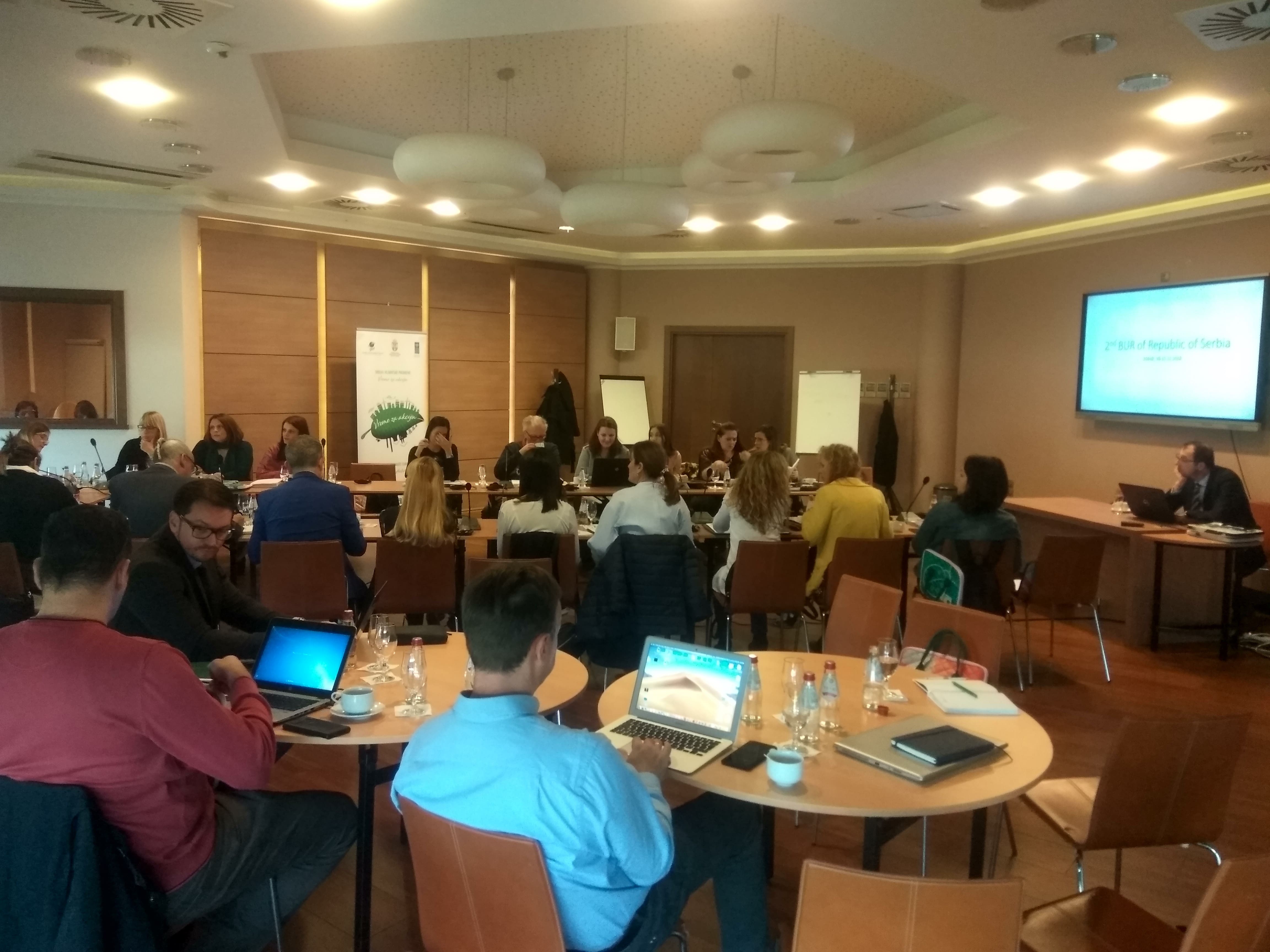The Ministry of Environment, together with the UNDP, held a three-day workshop on Dialogue on climate change in Serbia. In the period from 19 to 21 November, in Vrdnik, the second meeting of the Working Group within the project “Preparation of reports under the Unite Nations Framework Convention on Climate Change” was held and the first meeting of the Working Group within the project “Establishing a Transparency Framework for the Republic of Serbia”. Representatives of relevant institutions in Serbia attended the meeting, where the dialogue on climate change was conducted in a quality and inclusive manner.
During the meeting, a draft Second Biennial Updated Report under the UNFCCC was presented, which adoption and submission is expected in the forthcoming period. An inventory of greenhouse gases (GHGs) for 1990, 2000, 2005 and 2010-2016 was presented for all sectors present in the GHG Inventory. In addition, future emission reduction scenarios by 2030 were presented, as well as a possible increase in ambition over existing National Determined Contributions (NDCs).
In addition, during the meeting, a proposal for a climate change monitoring, reporting and verification (MRV) system was presented, aimed at establishing a comprehensive system for collecting data and information from all sectors relevant to climate change. Participants are introduced to the future reporting obligations under the MRV system and their role in the functioning of the system. Since the adoption of the Draft Law on Climate Change is expected, the establishment of such system is crucial for future reporting to the Convention, planning policies and measures in the area, as well as monitoring the implementation of the future NDCs.
During the second day of the meeting, more focus was on monitoring and reporting of implementation of Nationally Determined Contributions. The future obligations of the Republic of Serbia after 2020, when the implementation of the Paris Agreement begins, are presented. Regardless of the fact that Serbia is a developing country under the Convention, it will have much more frequent reporting obligations at the biennial level, with increased volume and level of detail of data and information. Mechanisms for monitoring the implementation of NDCs were presented, and through group work, participants had the opportunity to see in practical examples what level of information detail was required during reporting.
On the third day of the meeting, the needs for the improvement of the AFOLU sector under GHG Inventory (Agriculture, Forestry and Other Land Use) were presented. In addition to the improvements made in the previous period, which will be visible in the Third National Communication, proposals have been made for additional short-term and long-term measures to improve the AFOLU sector of the Inventory.
The meeting concluded with recommendations for submitting suggestions and comments on the draft Second Biennial Updated Report, in order to make the final version of the report as high-quality as possible.
Presentations and materials from the three-day workshop can be viewed here:
1. DAY 1 – 1. A. Jovovic-Prvi nacrt 2BUR-19 11 2019
2. DAY 1 – 2.J.Goodwin-Predlog MRV sistema-19 11 2019
3. DAY 2 – Juan – 1- Reporting obligations under the Paris Agreement after 2020
4. DAY 2 – Juan -2 – Mechanisms for tracking NDCs
6. DAY 3 – Juan – Proposal of short&long-term improvements in AFOLU






